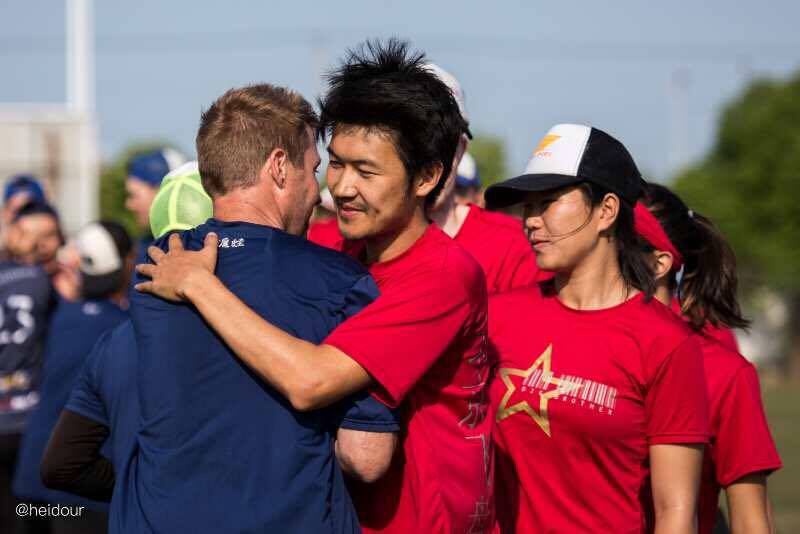For the past decade, writer and athlete Anthony Tao has been one of the leading voices covering overlooked stories in China. Writing for ESPN, Deadspin and now the managing Asia Editor of Sup China, Anthony has long been a unique, considerate and nuanced voice on Chinese culture and sports.
Anthony is just one of amazing writers we cooperate with on our RED INK China Literature Tour. He was kind enough to speak with Asia Art Tours and talk about writing, China and how best to find a voice in the world’s most populous nation.
What are some of the challenges when writing about China in China?
Writing about a place as large and complex and diverse as China is tricky in all the ways you might expect: every example has a counterexample, every declaration comes with a caveat. My advice to anyone seeking to “explain” China is to do less — assume less. Be humble, realize it’s a form of wisdom to admit what you don’t know. Ask more questions.
I should note that, while working, a lot of my frustrations stem from technical issues involving, say, a slow Internet, or a patchy VPN connection (VPNs are virtual proxy networks, i.e. software you install on your computer so that you can jump the Great Firewall to access otherwise blocked sites such as Gmail, YouTube, Facebook, Twitter, the New York Times, etc.). It can sometimes seem like China doesn’t want you to do work (which is true, depending on your work).

How do you focus on capturing the voices and perspectives of your subjects? Can someone do this as a non-fluent speaker?
As anywhere, you have to have a good ear. But short of that, i.e. if you don’t speak Chinese, you can compensate by having a great eye. There are stories everywhere, every day. I use Evernote and Notepad on my phone to jot down thoughts and observations.
What is your writing process like? How does this differ when you are editing other people’s works?
Writing and editing are both crafts, but editing pays the bills — it’s a job, no more and no less, which is probably why there’s no such thing as “experimental editing” in journalism. I’ve read enough stories by now to know what makes for a good one — I look for economy of words, assertiveness of voice, depth of expertise.
As for writing, I like to do it late at night, when nothing else is happening outside or around me. And I do it when I’m alone. Art is a solitary pursuit, not only because other people can be distracting, but because being alone — the state of loneliness itself — is required to nurture one’s inner mind and inner body, to give those aspects of oneself a fertile chamber, a comfortable hull, in which to cultivate a voice.
What are your thoughts on censorship and self censorship in China?
I think censorship has neutered contemporary Chinese culture, to the detriment of the world. China wants to import its soft culture but has found the outside world resistant, and it’s not hard to see why — their cultural products are often muddied with the fingerprints of apparatchiks. I understand why the government feels censorship is necessary, but that doesn’t make it any less insidious or harmful.
(Anthony is also an accomplished poet. Here he is performing during U.S. Poet laureate Tracy Smith’s visit to Beijing).
What is your recommended book for people interested in learning more about China?
So many. For fiction, you can’t go wrong with the classics: Pearl Buck’s The Good Earth, Lao She’s Rickshaw Boy or Cat Country, Lu Xun’s short stories. I really love Jonathan Tel’s The Beijing of Possibilities — he was someone who didn’t stay in China long, but the book he wrote (a collection of short stories) is stunning in its understanding of Chinese culture and history. Arthur Waley’s Monkey is a delightful translation of the famous Journey to the West.
Nonfiction: in addition to the obvious titles you probably already know, I highly recommend Ian Johnson’s Wild Grass, Richard McGregor’s The Party, John Pomfret’s Chinese Lessons, Philip Pan’s Out of Mao’s Shadow, and The New Yorker pieces of Evan Osnos and Jianying Zha (whose book China Pop is also great, despite the questionable cover). Watch Jia Zhangke’s movies and Chen Kaige’s Farewell My Concubine. So many more. Just start somewhere!
You can find more of Anthony’s writing at his sites: Anthonytao.com, at Beijing Cream, or at Supchina.
